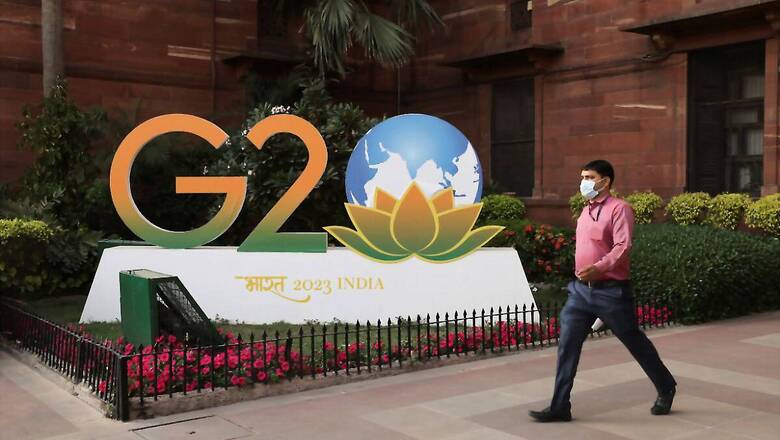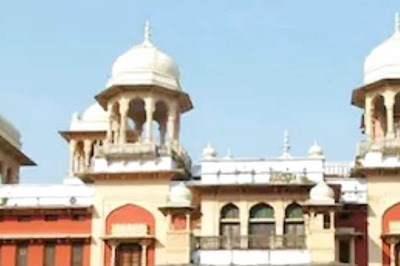
views
Even before the Covid-19 pandemic engulfed every aspect of our lives, we had witnessed a series of health emergencies in past years such as H1N1 pandemic, bird flu, Zika virus infection, Ebola virus disease (EVD), monkeypox, SARS, MERS infection – much of these limited to specific geographies but all giving us an opportunity to understand vulnerabilities and gaps in global public health detection, surveillance, prevention and response to infectious disease threats.
It is only when the Covid-19 outbreak happened that it provided an opportunity to understand that multiple dialogues and reviews conducted in managing public health emergencies, efforts for pandemic prevention, preparedness and response (PPR) remain insufficient. PPR, thus, emerged as a non-negotiable agenda before world leaders.
Invest more and better in health
The pandemic exacerbated and brought to fore issues of inequitable access, availability and affordability of quality medical countermeasures – vaccines, therapeutics and diagnostics (VTDs) – in different parts of the world, particularly in low and middle income countries (LMIC).
India’s G20 presidency has emerged as a frontrunner in prioritising the agenda on PPR along with access to quality medical countermeasures. The current presidency will work towards continuation of Italian and Indonesian presidencies’ agenda on creation of regional research and development as well as manufacturing networks for medical countermeasures, along with a collaborative research network for VTDs.
To reduce the impact of another health crisis, it is critical that to recognise gaps in pharmaceutical industries within countries, particularly in LMICs, greater resilience with enhanced local-level capacities in research as well as manufacturing should be developed. India being a developing country has been able to set an example before the world and, in particular, before the Global South that has similar issues. It supplied more than 250 million vaccine doses to over 100 countries as part of ‘Vaccine Maitri’. India also demonstrated its digital prowess to create and support vaccination access, facilities and analyse data through its online platform CoWIN. The success stories of India can further help shape G20 discussions on PPR.
The rapid development of Covid-19 vaccine has not been met with the assurance of an effective and equitable global distribution mechanism. Low-income countries are especially at risk, with the price of vaccines and supply shortages limiting their ability to procure and distribute them. The G20 forum can propel governments to prioritise equitable distribution to the most at-risk in all nations, while low-income countries should bolster their logistical capacity in preparation for mass vaccination campaigns.
Underscoring gaps in data surveillance, especially in resource-constrained settings, it is essential to further invest in data-sharing systems at a community level, which is customised as per local needs and capabilities. A robust surveillance network can effectively pick up infections at an initial stage so that the emergence of a new infection is curtailed, action framework is put in place and infection is prevented from spreading across the border and taking the shape of a pandemic.
Data sharing is critical to manage large-scale health emergencies. For instance, during the Nipah virus disease (NiV) outbreak in 2018 in Kerala, a rapid response team was put in place and were supported with a containment plan by international organisations.
Therefore, the need of the hour is to invest more in public health functions – robust surveillance, laboratories, information systems, digital health, information, education and communication, research and development – to strengthen both emergency preparedness and response.
International cooperation through G20 holds the key
Antimicrobial resistance (AMR) is an urgent global public health threat that is driven at large by injudicious antimicrobial use across human, animal and plant health sectors, which is a silent pandemic. There is a concern that it may further worsen ongoing pandemics of Covid-19 and monkeypox globally, leading to increased inappropriate use of antibiotics, in many instances people were self-prescribing medicines. World over, many antibiotics such as azithromycin were used indiscriminately.
Though the global action plan on AMR exists, yet all eyes are set on the G20 presidency to further provide the required impetus and further the ongoing agenda and efforts building on from the previous presidencies. It is important that national action plans (NAP) for countries are comprehensive, focusing on key elements of intersectoral convergence among all stakeholders like farmers, agriculturists, clinicians and individuals. More attention is needed for governance, funding, implementation and monitoring of NAPs.
Strengthening global health architecture is critical to prevent, prepare and manage future pandemics and outbreaks. Reformed global health architecture requires cross-cutting convergence among different health institutions at national, regional and global levels. It is important that we do not lose the momentum, stay vigilant and develop sustainable solutions built upon the existing lessons in front of us. This century has been one of health outbreaks; Covid-19 is not the last pandemic that we will see, so I believe that international cooperation will offer a ‘setu’, or bridge, for health resilience against future pandemics. It’s about time that we look at repurposing health infrastructure, plan policies, strengthen research and development, and leverage existing strengths in a way so that our global response to a health emergency next time leaves no room for regrets.
(Dr Randeep Guleria is a former director of AIIMS, New Delhi. Views expressed are personal)
Read all the Latest Opinions here

















Comments
0 comment